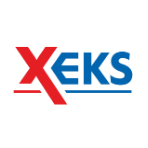8. Ensuring transparency in lobbying
Lobbying as a part of the democratic process
Lobbying is a fact of public life in all countries and an important aspect of democracy. It has the potential to promote democratic participation and can provide decision makers with valuable insights and information, as well as facilitating stakeholder access to public policy development and implementation. Yet, lobbying is often perceived as an opaque activity of dubious integrity, which may result in undue influence, unfair competition and policy capture to the detriment of fair, impartial and effective policy making.
Ensuring equal access to the development of public policies
Guaranteeing equal access to political participation to all citizens is at the core of democracy. To ensure fairness and a level playing field for stakeholders who seek to influence the decision-making process, everyone must be able to participate effectively in the policy-making process and the information enabling their participation needs to be available. If individuals with common interests are not able to express their views in a level playing field, their chance of effectively making their voice heard in political decision-making processes is low. Business and elite interests are often better organised and dispose over more resources and better connections to the public decision-makers. This may lead to biased political and administrative decisions. In order to guarantee a level playing field and mitigate the risk of undue influence by interest groups, it is crucial to ensure the representativeness of views and increase transparency in lobbying of business and elite interests.
Principles for Transparency and Integrity in Lobbying
The OECD Principles for Transparency and Integrity in Lobbying recommend to
- promote fair and equal access to the policy process of business and individuals
- address concerns, such as unequal access or lack of integrity, related to lobbying practices and communicate regulations clearly
- provide sufficient information about lobbying activities to citizens, businesses and public officials to ensure transparency
- enable civil society, citizens, businesses and media to act as a scrutinise lobbying activities
- train public officials and the private sector with respect to the lobbying regulations and their respective responsibilities
- share responsibility for fostering a culture of integrity with lobbyists who should comply with standards of professionalism and transparency
- review the rules and guidelines and adapt them as necessary on a regular basis
Key points to remember
- Lobbying is part of the democratic process
- However, a fair and equal access to the policy process of business and individuals needs to be ensured
- To guarantee a level playing field and mitigate the risk of undue influence by interest groups, the representativeness of views needs to be ensured and transparency in lobbying of business and elite interests strengthened











